Life and Ministry of ‘The Prince of Preachers’: 1. The Young Preacher
The life of Charles Haddon Spurgeon was so full of grace, gifts and labour, and so much has been written by and about him, that we must leave out much that is of interest and usefulness in reviewing his life and ministry.1
He was born in Kelvedon, a village in the county of Essex in the east of England, on 19th June 1834. For the first few years of his life he lived with his grandparents in a town called Stambourne, returning to his parents’ home when about five years old (his grandfather, James, was a Congregational [Independent] minister of the gospel, as was Charles’ father, John). Even in youth, his earnestness, boldness, and intelligence became rapidly apparent. From the earliest years of his life young Charles would plunder his grandfather’s shelves of their Puritan treasures, if only initially to look at pictures in, for example, Bunyan’s Pilgrim’s Progress2 and Foxe’s Book of Martyrs. Still, he learned to read and practiced the art from an early age. As the years progressed, his schooling continued to reveal a precocious intellect and a ready tongue.
At the age of fifteen he entered a school in Newmarket as both student and a teacher of younger boys. One of his own teachers in theology was the cook at the home in which he boarded, who loved and lived a vigorous Calvinism, and helped the young man with many difficult questions of faith and practice. He was spiritually sensitive, but still unconverted, although for many years he had been alive to the reality of his sin, painfully convinced of his wretchedness.
At the beginning of the next year, having returned home for Christmas, he set off for church one Sunday. This was the day appointed by God for his great work of grace in the young man’s heart. The circumstances are striking, and the honour is God’s alone. As he travelled, the Lord sent a snowstorm which eventually turned him into a Primitive Methodist chapel. As it happened, the regular minister was unable to be there – perhaps prevented by the same snowstorm – and eventually a thin man got up to preach. To this day, no-one knows who he was. His text was Isaiah 45.22: “Look unto me, and be ye saved, all the ends of the earth.” The man was no practiced speaker and, after about ten minutes of vigorous but curious exposition, he was running out of steam. Spotting the young stranger, he found a new aspect to his message:
Young man, you look very miserable, and you will always be miserable – miserable in life, and miserable in death – if you don’t obey my text; but if you obey now, this moment, you will be saved. Young man, look to Jesus Christ. Look! Look! Look! You have nothing to do but look and live!
This came with divine power to young Spurgeon’s soul. He had doubtless heard many good and powerful sermons in his youth, but now the Word of God came by the power of God’s Spirit with saving strength. Spurgeon looked and lived, and the joy of salvation flooded into his heart as he trusted in Christ to deliver him from sin, death and hell. It was 6th January 1850. The excellence and preciousness of Christ would colour all the subsequent labours of Charles Spurgeon.
It was not long before Satan roared in again at Charles. The young man had fondly imagined that he would now be free of such attacks, but doubts, foul thoughts and blasphemies again assailed him. This bitter experience was brief, as Christ helped his young lamb to wrestle against his sinful heart, but it taught Charles that Christian living was a battle, not a bed of roses. It was a battle which he earnestly joined as a Christian warrior.
Having been converted, Charles was admitted as a member of a Congregational church in April of that year. However, by now some of his thinking had matured, and he had been convinced from Scripture that believers, and only believers, ought to be baptised. He therefore applied to a local Baptist minister for baptism, and on 3rd May 1850 he walked eight miles to a village called Isleham where he was baptised by Mr. Cantlow in the River Lark (where a stone still stands to mark the spot). He received communion for the first time on 5th May (he would not take the Lord’s supper until he had been baptised), the same day on which he entered upon his labours as a Sunday School teacher, rapidly proving popular with the children, and with many adults also.
In the summer of 1850 he moved to the university city of Cambridge. In this city he continued as a teacher-student, and joined a Baptist church. As he entered into the life of the church, and advanced in his understanding, new opportunities for service arose; one in particular was unceremoniously thrust upon him. A man called James Vinter was responsible for organising various men to preach in outlying villages, and one day called Spurgeon to him. Vinter explained that a young man was going to preach at a village called Teversham, and – as the fellow in question was not much used to services – would probably be very glad of some company. Spurgeon accordingly met up with an older Christian lad, and they set off together to Teversham one Sunday afternoon. Their conversation soon revealed that this other young man was expecting Charles to preach, and nothing would induce the older boy to change his mind. With this new responsibility pressing upon him, he decided to preach his first sermon on ‘Unto you therefore which believe he is precious’ (1 Pet. 2:7), and did so to the profit and pleasure of the few villagers gathered in a cottage.
His preaching labours increased in number and effect, until – aged only seventeen – he was called to pastor a church in the godless village of Waterbeach, not far from Cambridge. His zealous labours and keen insight into the sin of men and the grace of God meant that, before too long, Waterbeach was transformed. Although there is evidence of development and maturing in these early years, surely there are few preachers who have been so fully and so early equipped by God as was Spurgeon! After two years in Waterbeach, and aged only nineteen, Spurgeon was invited to preach at New Park Street Chapel in London. There was a good pedigree to the church there: previous ministers had included Benjamin Keach, John Gill, and John Rippon, all differently but greatly used of God in their day. But a good pedigree was not enough. Iain Murray speaks of the prevailing spiritual conditions in England at the time:
Protestant Christianity was more or less the national religion … The church was not lacking in wealth, nor in men, nor in dignity, but it was sadly lacking in unction and power. There was a general tendency to forget the difference between human learning and the truth revealed by the Spirit of God. There was no scarcity of eloquence and culture in the pulpits, but there was a marked absence of the kind of preaching that broke men’s hearts. Perhaps the worst sign of all was the fact that few were awake to these things.3
In this context, Spurgeon entered London and began to declare God’s Word.
The chapel at New Park Street had seats for some twelve hundred people. On the morning Spurgeon first preached, there were perhaps between one hundred and two hundred people present. God so owned his preaching to the congregation that they – excited by what they heard – called out friends and neighbours, so that by the evening the congregation was significantly larger. Spurgeon agreed to return for further preaching dates, and within a few weeks, the church had called him to become their pastor. The young preacher offered to come on three months’ trial, and called for earnest prayer from the church. It was not long before the building was packed with eager hearers as Spurgeon, himself earnestly praying and enjoying the same with and from the people, preached the sovereign grace of God in Christ Jesus, and the church urged him to receive the pastorate on a full time basis. Spurgeon accepted on the condition of this earnest and urgent prayer continuing.
Rapidly, rapidly, the gospel spread, and crowds flocked to hear this unorthodox and ‘unschooled’ preacher.4
This country boy, who had learned vigorous and full-orbed evangelical Calvinism – as if true Calvinism were anything else! – from his parents and grandparents, from libraries of Puritan authors, and from an old cook, soon saw multitudes being converted, and his fame spreading. As Spurgeon often remarked, Calvinism was merely a nickname for the gospel of Jesus Christ, and how that gospel was effectual as he preached! His prodigious intellectual ability, consecrated to the service of his Saviour and in constant dependence on the grace of God, enabled him to maintain a constantly fresh and vigorous ministry. The building in which the church met soon proved too small to contain the thronging crowds, and extensions to the building and temporary visits to other larger halls in which he could preach provided no final answer. The preacher himself, always conscious of the spiritual burden of his work, soon began to feel the physical and emotional effects as well. It was, however, during these early years in London that Spurgeon came to know, admire and then love a young lady called Susannah Thompson. The demands on his time and energy did not make courtship easy, but the deep love the two shared, and Susannah’s increasing spiritual maturity, happily led to their marriage on 8th January 1856.
In the meantime, Spurgeon’s increasingly varied and blessed labours brought him under increasing scrutiny, and often into conflict, quite naturally with the world, but also – sadly – with other professing Christians. His unashamed proclamation of the doctrines of grace antagonised both Arminians5 and hyper-Calvinists.6 His spiritual vigour and holy bluntness often enraged those who did not share his understanding of God’s Word. In 1855, partly in answer to his slanderers, Spurgeon nailed his colours even more firmly to the mast with the re-publication of The 1689 Baptist Confession of Faith.7 More importantly, he wanted to furnish the people to whom he preached with a plain statement of the faith once for all delivered to the saints. Spurgeon stood firmly in the stream of historic biblical Christianity, as manifested among his Particular Baptist forefathers. In introducing the volume to the church, Spurgeon wrote:
This ancient document is a most excellent epitome of the things most surely believed among us. By the preserving hand of the Triune Jehovah, we have been kept faithful to the great points of our glorious gospel, and we feel more resolved perpetually to abide by them. This little volume is not issued as an authoritative rule, or code of faith, whereby you are to be fettered, but as an assistance to you in controversy, a confirmation in faith, and a means of edification in righteousness. Here the younger members of our church will have a Body of Divinity in small compass, and by means of the Scriptural proofs, will be ready to give a reason for the hope that is in them.
In the same year began the regular publication of a weekly sermon, soon gathered into annual collections, continuing throughout Spurgeon’s life and – using up unpublished sermons – after his death, so that 63 such volumes of sermons are now in existence.
It is worth pausing here to emphasise again that Spurgeon was thoroughly committed to true Calvinism in all its Scriptural, evangelical vibrancy. He declared his position in this way:
I have my own private opinion that there is no such thing as preaching Christ and Him crucified, unless we preach what nowadays is called Calvinism. It is a nickname to call it Calvinism; Calvinism is the gospel, and nothing else. I do not believe we can preach the gospel, if we do not preach justification by faith, without works; nor unless we preach the sovereignty of God in His dispensation of grace; nor unless we exalt the electing, unchangeable, eternal, immutable, conquering love of Jehovah; nor do I think we can preach the gospel, unless we base it upon the special and particular redemption of His elect and chosen people which Christ wrought out upon the cross; nor can I comprehend a gospel which lets saints fall away after they are called, and suffers the children of God to be burned in the fires of damnation after having once believed in Jesus. Such a gospel I abhor.8
In taking such a stand, Spurgeon had to defend himself from the charge of Arminianism. The hyper-Calvinists claimed that he had no right to plead with sinners to turn to Christ and be saved, and that he was mistaking the gospel. In another sermon from the New Park Street Pulpit (on “Particular Redemption”) Spurgeon declares his adherence to the biblical gospel in all its fullness and freeness (in opposition both to Arminian and hyper-Calvinistic abuses and misunderstandings):
I must now return to that controverted point again. We are often told (I mean those of us who are commonly nicknamed by the title of Calvinists – and we are not very much ashamed of that; we think that Calvin, after all, knew more about the gospel than almost any man who has ever lived, uninspired) – we are often told that we limit the atonement of Christ, because we say that Christ has not made a satisfaction for all men, or all men would be saved. Now, our reply to this is, that, on the other hand, our opponents limit it: we do not. The Arminians say, Christ died for all men. Ask them what they mean by it. Did Christ die so as to secure the salvation of all men? They say, “No, certainly not.” We ask them the next question – Did Christ die so as to secure the salvation of any man in particular? They answer “No.” They are obliged to admit this, if they are consistent. They say, “No; Christ has died that any man may be saved if” – and then follow certain conditions of salvation. We say, then, we will go back to the old statement – Christ did not die so as beyond a doubt to secure the salvation of anybody, did he? You must say “No;” you are obliged to say so, for you believe that even after a man has been pardoned, he may yet fall from grace, and perish. Now, who is it that limits the death of Christ? Why, you. You say that Christ did not die so as to infallibly secure the salvation of anybody. We beg your pardon, when you say we limit Christ’s death; we say, “No, my dear sir, it is you that do it.” We say Christ so died that he infallibly secured the salvation of a multitude that no man can number, who through Christ’s death not only may be saved but are saved, must be saved, and cannot by any possibility run the hazard of being anything but saved. You are welcome to your atonement; you may keep it. We will never renounce ours for the sake of it.9
How did such convictions work themselves out in practice? How did Spurgeon not only hold his ground, but advance the cause of Christ? We gain a glimpse into his heart if we listen to his earnest pleadings with sinners.
I cannot plead as I could wish. Oh! if I could I would plead with my heart, with my eyes, and my lips, that I might lead you to the Saviour. You need not rail at me and call this an Arminian style of preaching; I care not for your opinion, this style is Scriptural. “As though God did beseech you by us, we pray you, in Christ’s stead, be ye reconciled to God.” Poor broken-hearted sinner, God is as much preaching to you this morning, and bidding you be reconciled, as if he stood here himself in his own person; and though I be a mean and puny man by whom he speaketh, he speaketh now as much as if it were by the voice of angels, “Be reconciled to God.” Come, friend, turn not thine eye and head away from me; but give me thine hand and lend me thine heart whilst I weep over thine hand and cry over thine heart, and beseech thee not to despise thine own mercy, not to be a suicide to thine own soul, not to damn thyself. Now that God has awakened thee to feel that thou art an enemy, I beseech thee now to be his friend. Remember, if thou art now convinced of sin, there is no punishment for thee. He was punished in thy stead. Wilt thou believe this? Wilt thou trust in it, and so be at peace with God? If thou sayest, “No!” then I would have thee know that thou hast put away thine own mercy. If thou sayest, “I need no reconciliation,” thou hast thrust away the only hope thou canst ever have. Do it at thine own hazard; I wash my hands of thy blood. But, but, but, if thou knowest thyself to need a Saviour if thou wouldst escape the hellish pit, if thou wouldst walk among them that are sanctified, I again, in the name of him that will condemn thee at the last day, if thou rejectest this invitation, implore and beseech thee to be reconciled to God. I am his ambassador. When I have done this sermon, I shall go back to court. Sinner, what shall I say of thee. Shall I go back and tell my Master that thou intendest to be his enemy for ever? Shall I go back and tell him, “They heard me, but they regarded not?” they said in their hearts, “we will go away to our sins and our follies, and we will not serve your God, neither fear him!” Shall I tell him such a message as that? Must I be driven to go back to his palace with such a fearful story? I beseech thee, send me not back so, lest my Master’s wrath wax hot, and he say,
“They that despised my promised rest,
Shall have no portion there.”But oh! may I not go back to court to-day, and tell the Monarch on my knees, “There be some my Lord, that have been great rebels, but when they saw themselves rebels, they threw themselves at the foot of the cross, and asked for pardon. They had strangely revolted, but I heard them say, ‘If he will forgive me I will turn from my evil ways, if he will enable me!’ They were gross transgressors, and they confessed it; but I heard them say, ‘Jesus, thy blood and righteousness are my only trust.'” Happy ambassador, I will go back to my Master with a gladsome countenance, and tell him that peace is made between many a soul and the great God. But miserable ambassador who has to go back and say, “There is no peace made.” How shall it be? The Lord decide it! May many hearts give way to Omnipotent grace now, and may enemies of grace be changed into friends, that God’s elect may be gathered in, and his eternal purpose accomplished.10
Here is a man convinced that Christ died for his people, and that Christ will therefore save his people from their sins by the application of his blood, bringing them to himself through the preaching of the Word.
There were other particular trials and assaults. Denied the use of Exeter Hall (where he had often preached because of overcrowding at New Park Street) he undertook to preach at Surrey Gardens Music Hall, where as many as ten thousand people might be able to come to hear him. The first service was due to take place on the Lord’s day, 19th October 1856, shortly after the Spurgeons had moved house, and become happy parents to twin boys, Charles and Thomas. However, soon after the service began, a pre-arranged series of cries (claiming fire, falling galleries, and a general collapse of the building) caused a fearful panic, and in the ensuing rush for the exits, seven people died, and almost thirty were hospitalised, some in a serious condition. Spurgeon was publicly vilified by many. The deacons of the church protected their sensitive pastor from the trauma of the event as much as they could, but his soul was torn up by the tragedy, and it was some time before the Lord was pleased to restore him to his usual health and strength.
Despite this fearful event, Spurgeon eventually returned to preach at Surrey Gardens, usually on the Lord’s day mornings, and God graciously blessed his ministry. Multitudes made credible professions of faith, the church at New Park Street grew both in numbers and in the grace and knowledge of Christ, and various believers and other churches enjoyed a revival of true religion.
During this period, plans were afoot for the construction of a building sufficient to hold on a regular basis a gathered congregation of the sort accustomed to hear Mr Spurgeon. Thus was built the Metropolitan Tabernacle, able to hold some six thousand hearers (though it was not designed for quite so many). Labours to open the building free of debts were prodigious. The first meeting in the unfinished building took place on 21st August 1860, and the first Sunday service was on 31st March 1861, as part of two weeks of celebrations of God’s goodness and mercy. The ‘five points of Calvinism’ were preached on as part of these opening services. In those first months many testified to their faith in baptism and were added to the church, as God continued to own his servant’s labours. Spurgeon’s first formal words in the new building were these:
I would propose that the subject of the ministry in this house, as long as this platform shall stand, and as long as this house shall be frequented by worshippers, shall be the person of Jesus Christ. I am never ashamed to avow myself a Calvinist; I do not hesitate to take the name of Baptist; but if I am asked what is my creed, I reply, ‘It is Jesus Christ.’ My venerated predecessor, Dr. Gill, has left a Body of Divinity, admirable and excellent in its way; but the Body of Divinity to which I would pin and bind myself forever, God helping me, is not his system, or any other human treatise; but Christ Jesus, who is the sum and substance of the gospel, who is in himself all theology, the incarnation of every precious truth, the all-glorious personal embodiment of the way, the truth, and the life.
These massive efforts were not the sum of Mr Spurgeon’s labours. Alongside his preaching and the pastoring of the flock other enterprises developed. One of the more significant was the Pastors’ College. This ‘school of the prophets’ was dear to Spurgeon’s heart. It began in about 1855, when a young man who had been converted under Spurgeon’s ministry began to spend a few hours with Mr Spurgeon every week with a view to preparing for the ministry. In these early years, several godly and zealous young men came to his attention, and soon – fashioned by the Triune God and through the principled care and instruction of his servant – they were going out to preach the gospel. Some of Spurgeon’s weekly lectures to the students were published as Lectures to my Students, an excellent text-book of pastoral theology.11 In addition, in 1865 a magazine was begun called The Sword and the Trowel: A record of combat with sin and labour for the Lord. Spurgeon published books, a volume of daily readings, a hymn book used by the church at the Tabernacle, and began working on a massive and profound commentary on the Psalms entitled The Treasury of David. An organisation for the distribution of good books was begun, with men of rugged character and warm hearts spreading the gospel by word of mouth and page throughout the country. There were almshouses for widows; an orphanage was constructed for boys, and then an addition for girls. Spurgeon’s convictions galvanised him to work for the good of the bodies of men and women and children, while he never lost sight of the enduring value of winning their souls. The Metropolitan Tabernacle was a constant hive of godly industry, open all day, every day. After twenty-five years in London, Spurgeon’s secretary had a list of some sixty-six institutions over which Spurgeon presided, all of them maintained by faithful giving and willing labour from the Lord’s people.
[to be continued]
Notes
- This is the first of two parts of a slightly extended version of an article which first appeared in the Tamil language in the 10th anniversary edition of The Bible Lamp magazine, also published separately as a booklet. The second part – ‘Valiant for Truth’ – can be found here.
- Iain H Murray, The Forgotten Spurgeon (Banner of Truth, 2002 reprint), p. 21.
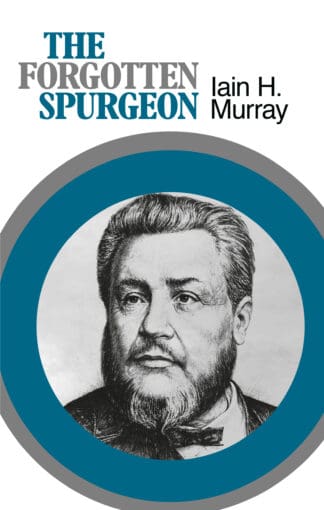
price From: £6.75Description
The life of Charles Haddon Spurgeon was so full of grace, gifts and labour, and so much has been written by and about him, that we must leave out much that is of interest and usefulness in reviewing his life and ministry.1 He was born in Kelvedon, a village in the county of Essex in […]
- Spurgeon never received any formal ministerial training, but was an avid scholar all his life.
- In short, and in this context, those who believe that a man can make a contribution to his own salvation prior to his regeneration.
- In short, and in this context, those who believe that God’s sovereign grace means that no-one should be urged to put their faith in Christ.
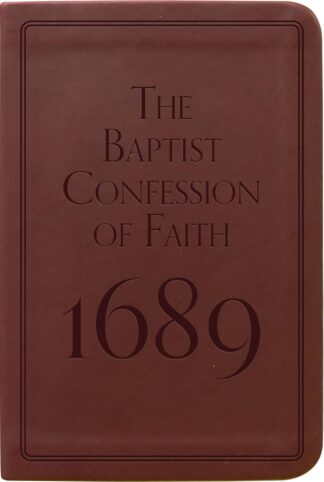
price From: £5.00Description
The life of Charles Haddon Spurgeon was so full of grace, gifts and labour, and so much has been written by and about him, that we must leave out much that is of interest and usefulness in reviewing his life and ministry.1 He was born in Kelvedon, a village in the county of Essex in […]
- C. H. Spurgeon, Autobiography, Volume 1 – ‘The Early Years’ (Banner of Truth, 2005 reprint), p. 168.
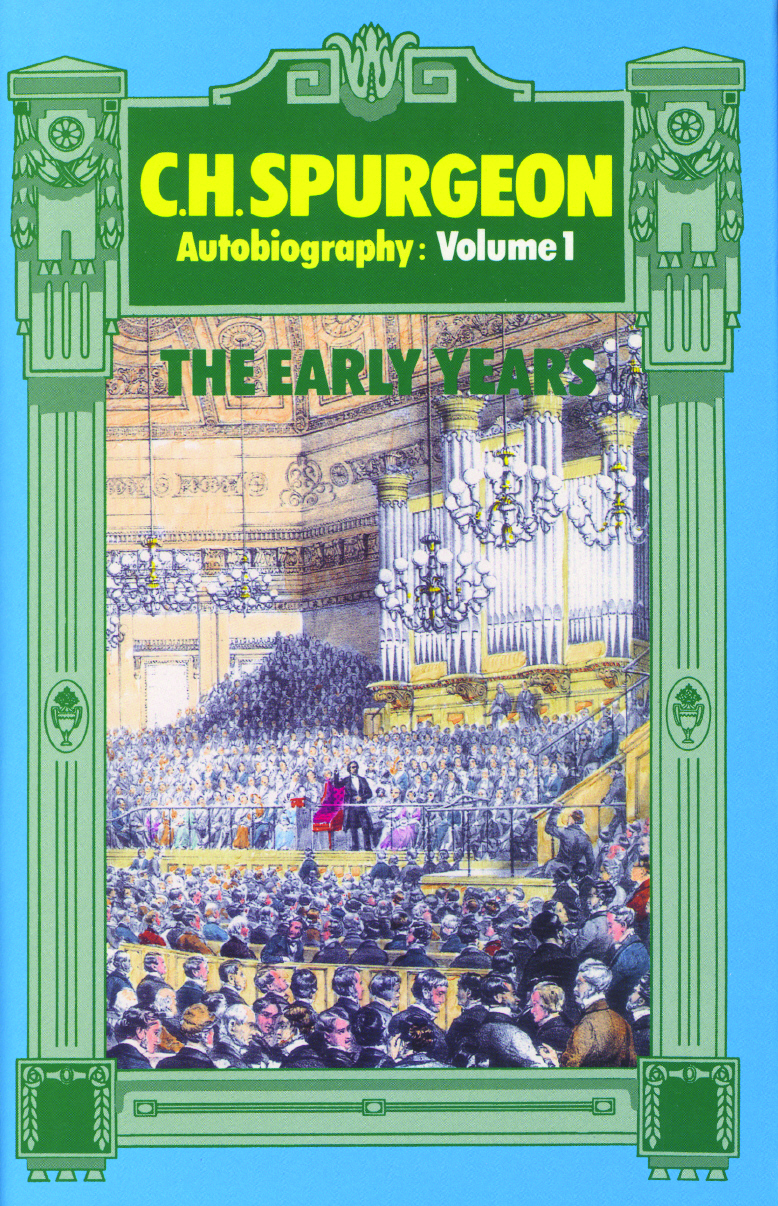
C.H. Spurgeon Autobiography
Volume 1: The Early Years
price £17.00Description
The life of Charles Haddon Spurgeon was so full of grace, gifts and labour, and so much has been written by and about him, that we must leave out much that is of interest and usefulness in reviewing his life and ministry.1 He was born in Kelvedon, a village in the county of Essex in […]
- Charles H. Spurgeon, “Particular Redemption,” in The New Park Street Pulpit (1858; reprint, Grand Rapids, MI: Baker Books, 1994), 4:135.
- Charles H. Spurgeon, “Substitution,” in The New Park Street Pulpit (1857; reprint, Grand Rapids, MI: Baker Books, 1994), 3:282-283. One could turn almost at random to some of these early sermons, in which Spurgeon recognised that many before him were unconverted, to find similar entreaties.
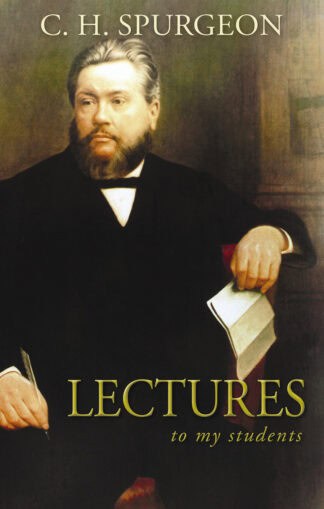
price From: £13.00Description
The life of Charles Haddon Spurgeon was so full of grace, gifts and labour, and so much has been written by and about him, that we must leave out much that is of interest and usefulness in reviewing his life and ministry.1 He was born in Kelvedon, a village in the county of Essex in […]
Other books on and by Spurgeon published by the Trust include:
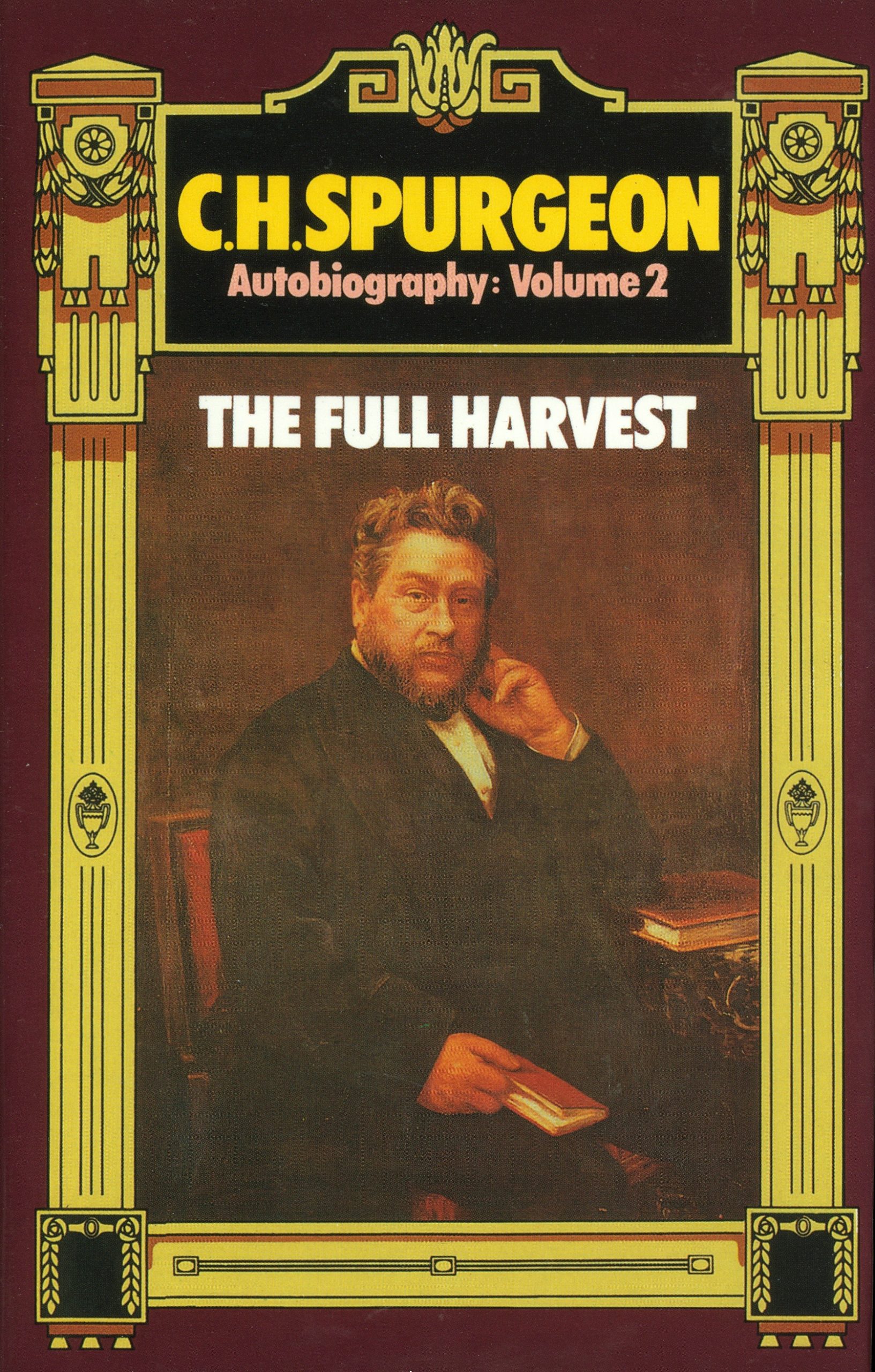
C.H. Spurgeon Autobiography
Volume 2: The Full Harvest 1860-1892
price £17.00Description
The life of Charles Haddon Spurgeon was so full of grace, gifts and labour, and so much has been written by and about him, that we must leave out much that is of interest and usefulness in reviewing his life and ministry.1 He was born in Kelvedon, a village in the county of Essex in […]
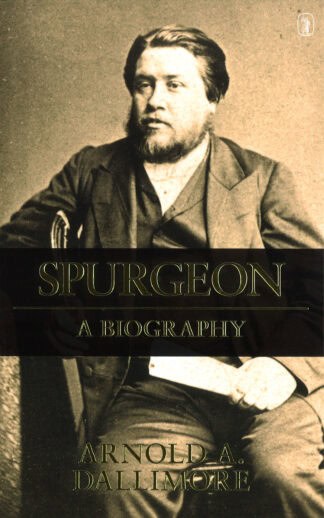
Spurgeon
A Biography
price From: £6.30Description
The life of Charles Haddon Spurgeon was so full of grace, gifts and labour, and so much has been written by and about him, that we must leave out much that is of interest and usefulness in reviewing his life and ministry.1 He was born in Kelvedon, a village in the county of Essex in […]
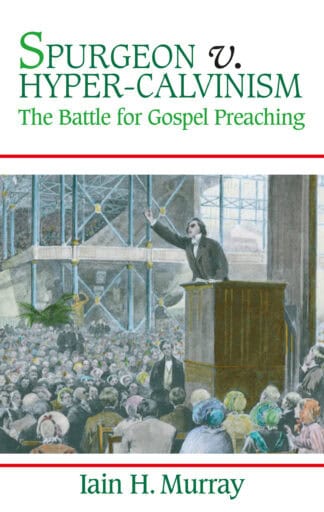
Spurgeon vs. Hyper-Calvinism
The Battle For Gospel Preaching
price From: £5.50Description
The life of Charles Haddon Spurgeon was so full of grace, gifts and labour, and so much has been written by and about him, that we must leave out much that is of interest and usefulness in reviewing his life and ministry.1 He was born in Kelvedon, a village in the county of Essex in […]
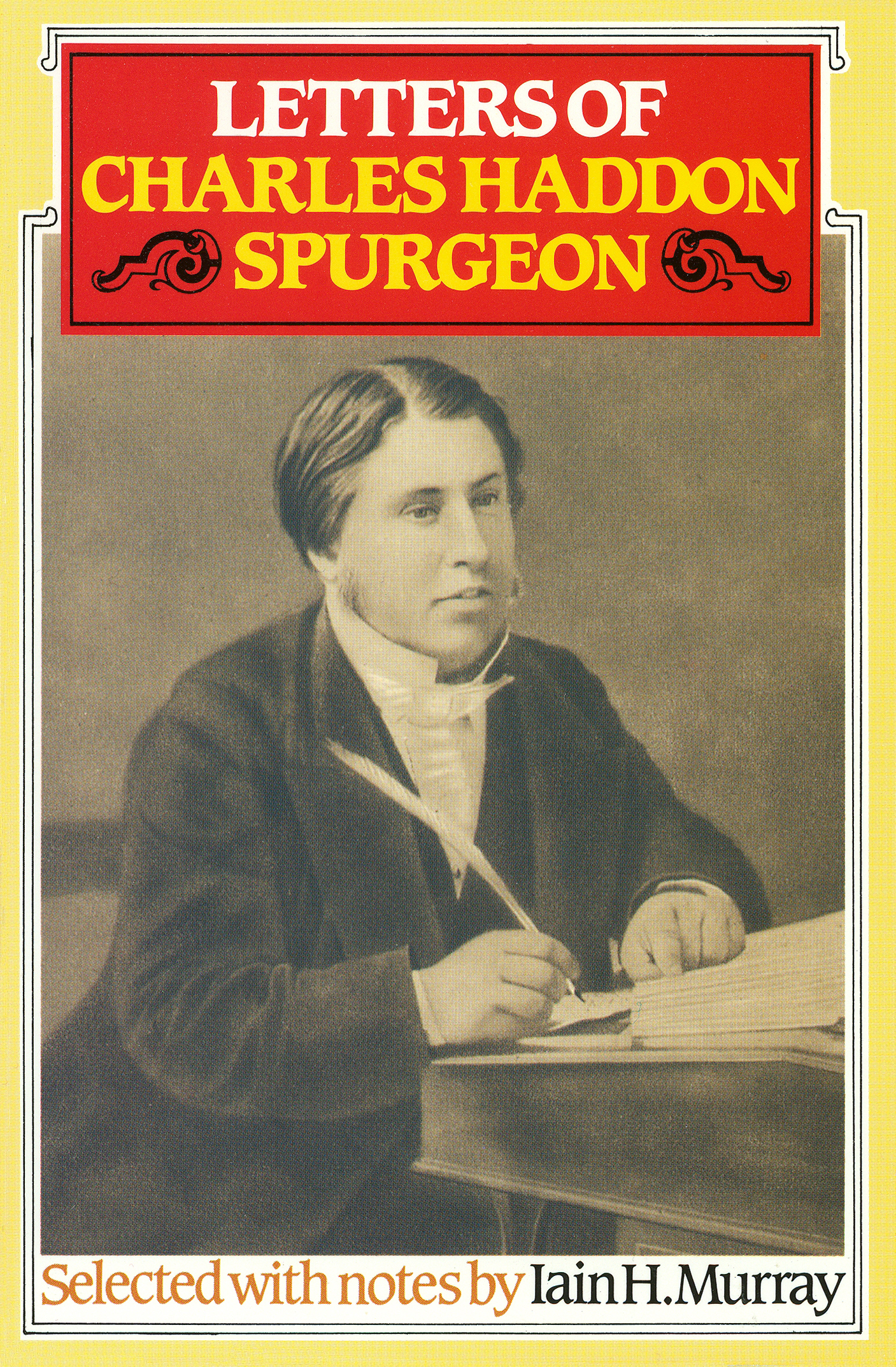
Letters Of Charles Haddon Spurgeon
Selected With Notes by Iain H. Murray
price £5.50Description
The life of Charles Haddon Spurgeon was so full of grace, gifts and labour, and so much has been written by and about him, that we must leave out much that is of interest and usefulness in reviewing his life and ministry.1 He was born in Kelvedon, a village in the county of Essex in […]
…plus several volumes of sermon selections, such as the 2005 reprints of Spurgeon’s sermons on the passion and death of Christ:
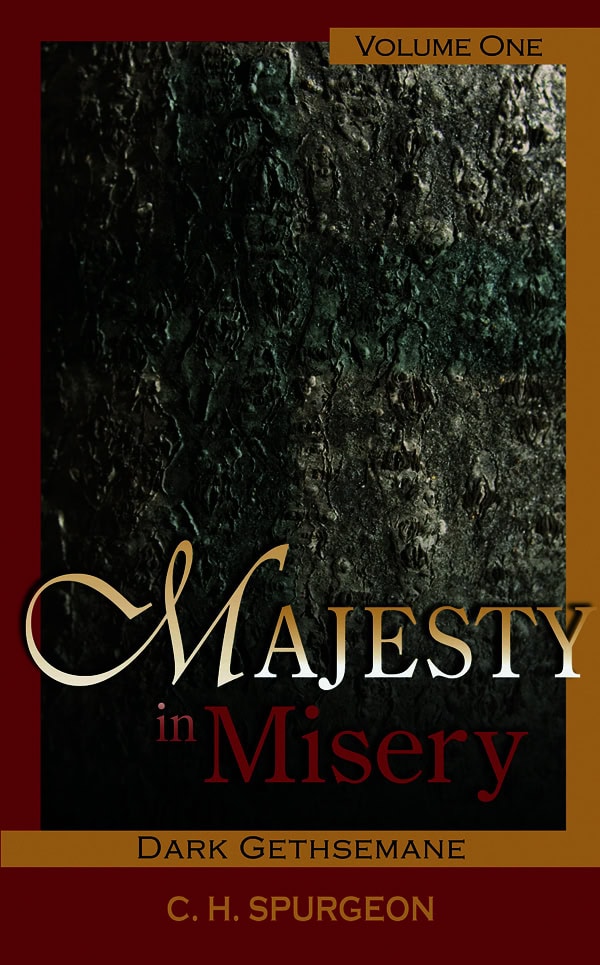
Majesty in Misery
Volume 1: Dark Gethsemane
price £14.00Description
The life of Charles Haddon Spurgeon was so full of grace, gifts and labour, and so much has been written by and about him, that we must leave out much that is of interest and usefulness in reviewing his life and ministry.1 He was born in Kelvedon, a village in the county of Essex in […]
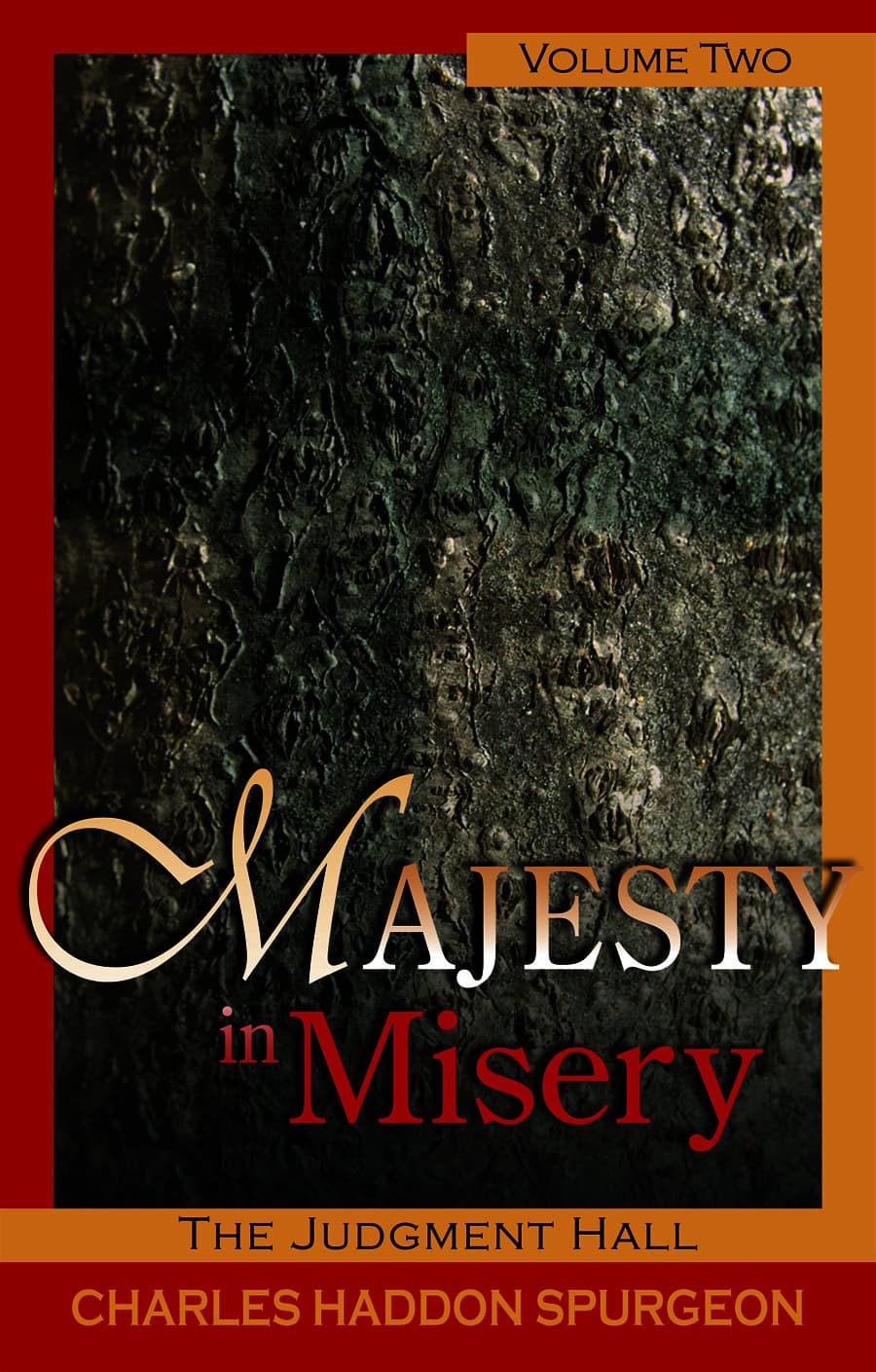
Majesty in Misery
Volume 2: Judgment Hall
price £14.50Description
The life of Charles Haddon Spurgeon was so full of grace, gifts and labour, and so much has been written by and about him, that we must leave out much that is of interest and usefulness in reviewing his life and ministry.1 He was born in Kelvedon, a village in the county of Essex in […]
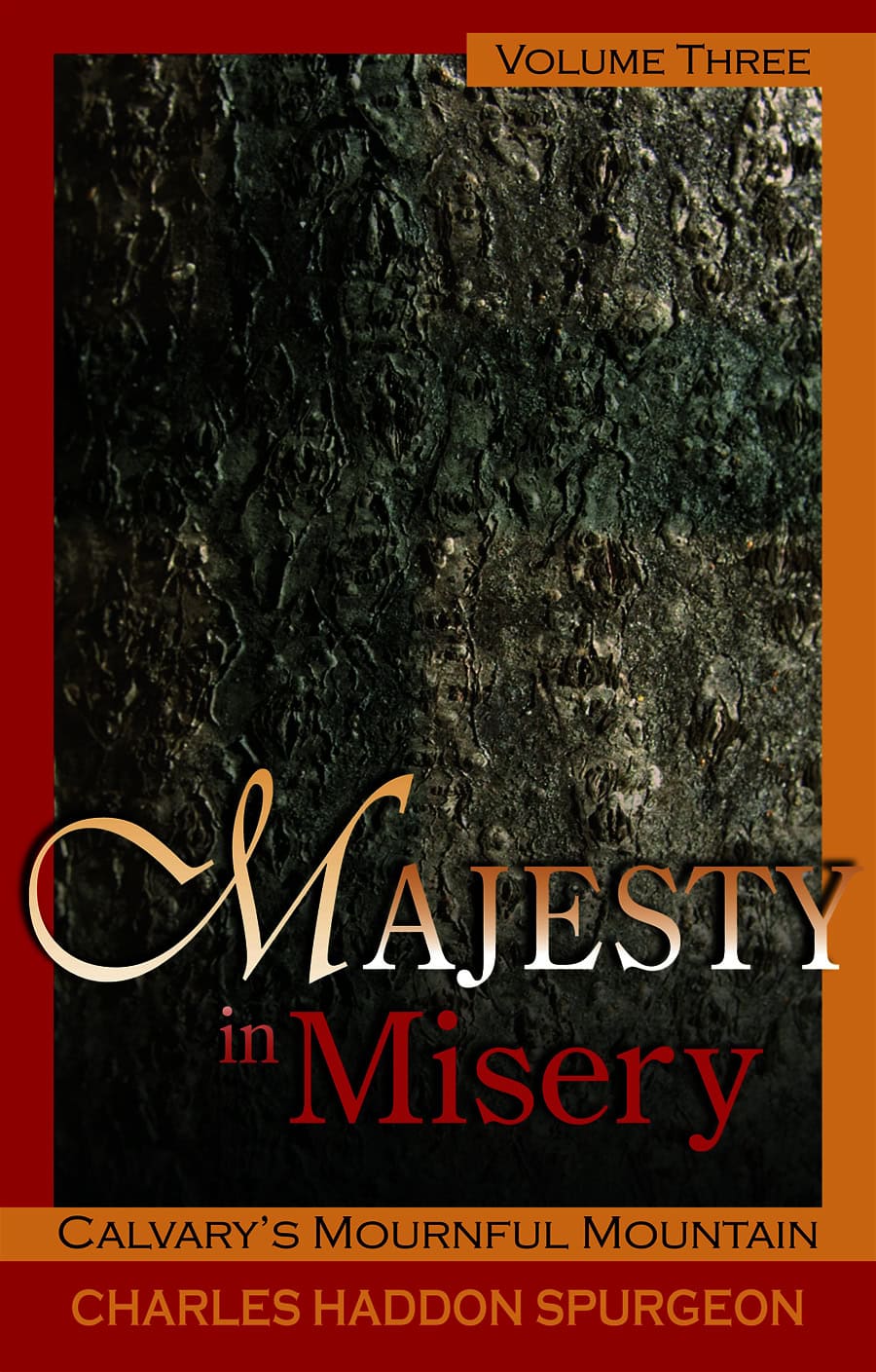
Majesty in Misery
Volume 3: Calvary's Mournful Mountain
price £15.00Description
The life of Charles Haddon Spurgeon was so full of grace, gifts and labour, and so much has been written by and about him, that we must leave out much that is of interest and usefulness in reviewing his life and ministry.1 He was born in Kelvedon, a village in the county of Essex in […]
Jeremy Walker is one of the pastors of Maidenbower Baptist Church, Crawley, West Sussex, UK
Latest Articles
On the Trail of the Covenanters 12 February 2026
The first two episodes of The Covenanter Story are now available. In an article that first appeared in the February edition of the Banner magazine, Joshua Kellard relates why the witness of the Scottish Covenanters is worthy of the earnest attention of evangelical Christians today. In late November of last year, on the hills above […]
A Martyr’s Last Letter to His Wife 11 February 2026
In the first video of The Covenanter Story, which releases tomorrow, we tell the story of James Guthrie, the first great martyr of the Covenant. On June 1, the day he was executed for high treason, he coursed the following farewell letter to his wife: “My heart,— Being within a few hours to lay down […]
